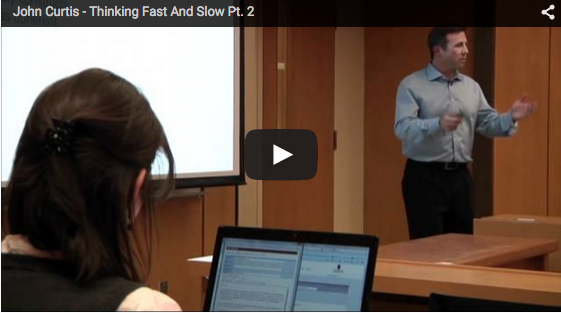You walk up to the blackjack table with $50 in chips. What’s the goal of your first bet? To win money. You bust, and now you’re down $50. Do you walk away or try to recoup your loss? Most people stay, and the second bet is much easier to place. Why? Because the goal changes: instead of trying to gain, you are trying to avoid loss.
We are hardwired to hate losing more than we love winning. Loss aversion explains why we place the second bet. It affects everything from retail and personal decisions to the fate of nations. Scotland’s “No” vote to become an independent country is a case study not just in politics but also in loss aversion.
United Because…Well, Why Risk It?
The people in Scotland who opposed separation from the UK were focused on the negatives rather than the positives. Instead of framing the decision in terms of what they wanted for their country, they concentrated on the risks and potential losses.
The benefit of being able to control and invest oil revenues more advantageously did not loom as large as the threat of creating problems in currency arrangements and EU membership. The boon of autonomy in military matters wasn’t as important as the risk of increased security challenges.
The debate focused on the “cons”: what would happen to the value of pensions? Would they lose them? Would they be issued in a different currency? Would they be worth less? Would property be valued in GB pounds? Would property values decline? And finally, the Bank of Scotland announced it would leave if voters approved independence. Would other businesses follow?
The Quebec Connection
These questions are similar to those faced when Quebec held a referendum to separate from Canada in 1995. Voters there were more inclined to face the risk, and the “No” vote won by only a very small margin.
The Quebec example was used by both sides in the Scotland debate: the pro-independence voices predicted that if Scotland did not separate now, future economic initiatives would be inhibited. The “No” votes warned that major businesses would leave, internal investment would suffer, and the country would face a credit crunch.
In general, losses are viewed as much more significant than comparable gains. Research shows that a gain has to be twice as much as a loss in order to outweigh it. Sometimes it can be hard to quantify loss, but in a debate potential losses are often highlighted and used as a method to sway voters. For instance, what if businesses leave? A major concern is that if employers leave, people lose their communities and way of life. The potential gain turned out not to be worth the risk of loss for the majority of Scotland’s voters.
Loss Aversion and Conflict
Loss aversion is one of the most frequent causes of failure in mediation. When one party feels that settling would represent an unacceptable loss, it can doom talks from the onset.
Shankar Vedantam, author of The Hidden Brain, says, “…the fundamental idea with loss aversion is that you’re driving by looking in the rearview mirror. That’s what loss aversion is. It’s not a good idea when you’re driving. It’s not a good idea when you’re gambling, and it’s certainly not a good idea when it comes to national policy.” Or when it comes to your own negotiations.
In the case of Scotland’s stalled independence movement, the losses and risks were framed in such a way that they overshadowed potential benefits. Was it the right choice? It’s debatable, but it was certainly one based on bias. In general, looking forward, focusing on the positives, instead of avoiding loss at all costs can help you achieve better outcomes in negotiations. While easier said than done, it is possible and possibly probable.




